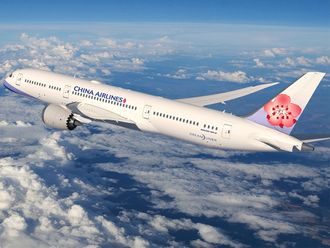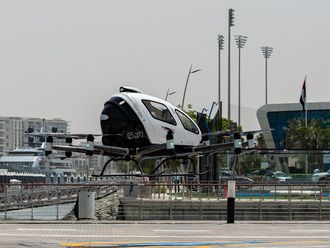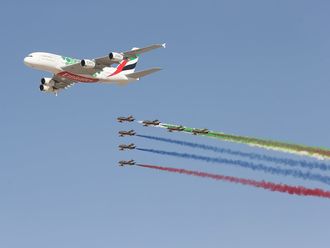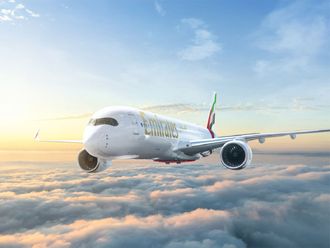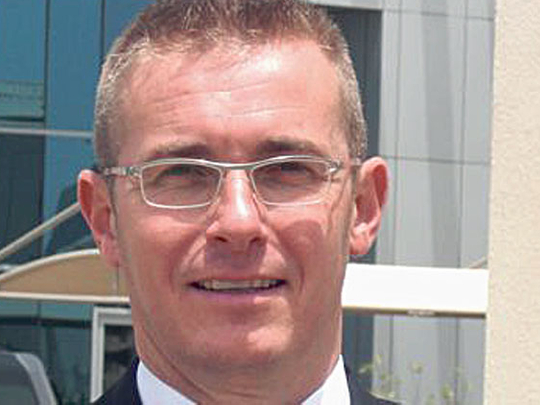
Dubai: Safi Airways, Afghanistan's airline under German management, is going to expand its flight network from Kabul to several new destinations, including Doha and New Delhi. In Beijing, Safi Airways has already been granted landing rights and is currently working out plans for regular connections in the future.
Claus Fischer, chief commercial officer of Afghanistan's youngest airline, told Gulf News in an interview that demand has exceeded expectations and the load factor on certain flights is already close to 80 per cent in the summer season. Together with its cargo operations, Safi Airways is posting profits "for the first time in its history," Fischer said.
The airline was founded in 2006 by Dubai-based business conglomerate Safi Group, which is involved in steel and oil trade, construction, agriculture, export and the hotel and travel business. The airline was later joined by Tilmann Gabriel, a German businessman and ex-Lufthansa pilot, who became CEO.
The carrier is the only one based in Afghanistan certified by the International Civil Aviation Organisation — meaning that it fulfils the required standards to land at international airports. In addition, since 2009, the Afghanistan president has flown Safi Airways for all of his trips abroad, which explains the airline's popularity.
Frequent flights
Moreover, the Kabul-Frankfurt flights are to be expanded from three to five times a week on an Airbus A340-300 from March 2010.
"Especially in the summer season, we have many Afghan families travelling to Europe and the US to visit relatives," says Fischer. "Also many expatriates working in Afghanistan are using our connection as it is known for its reliability and safety."
Another target group for Safi Airways includes members of international organisations and military personnel, who until now mostly used charter and army flights from and to Kabul.
"Many of them now choose Safi Airways as we fulfil the demanded safety and security certifications," says Fischer. In general, air traffic in Afghanistan is "exploding", he adds, as it has doubled "on all flights regardless of the carrier."
Safi Airways is competing with Afghanistan's national carrier Ariana as well as with private airlines Kam Air and Pamir Airways, which currently do not offer direct flights to Europe due to safety restrictions. However, the rising air traffic has shown that infrastructure at Kabul airport is desperately in need of an overhaul, Fischer says.
Even after a new terminal was inaugurated recently, ground handling can only be seen as "chaotic," he says of the situation in Kabul.
"A lot of infrastructure measures are necessary, starting from reliable power supply and ending with ticketing procedures following international standards."
Security measures
Despite the chaotic situation, security at Kabul airport is tight, Fischer says. It is handled by British Security firm Global at a cost of approximately $430 million (Dh1.58 billion) a year, funded by the UAE.
Safi Airways has its administrative headquarters in Dubai and an office in Kabul. In the future, more processes will be moved to the Afghan capital, Fischer says, but Dubai remains an important base as it is the main hub for Safi's regional flights.
Recently, Safi Airways has inked an interline agreement with Lufthansa, Qatar Airways, Emirates and United Airlines, meaning that passengers from worldwide destinations heading to Kabul will be provided with a single ticket. Interline tickets will be available from February 1, and the next step will be a code-share agreement with those carriers, Fischer says.
Safi Airways is also eyeing an Initial Public Offering in the near future, but there is no specific date for it yet, Fischer says.
"We have to achieve sustainable operating profit and want to go public only with a fully established company."
However, new funding is sought for further expansion.


